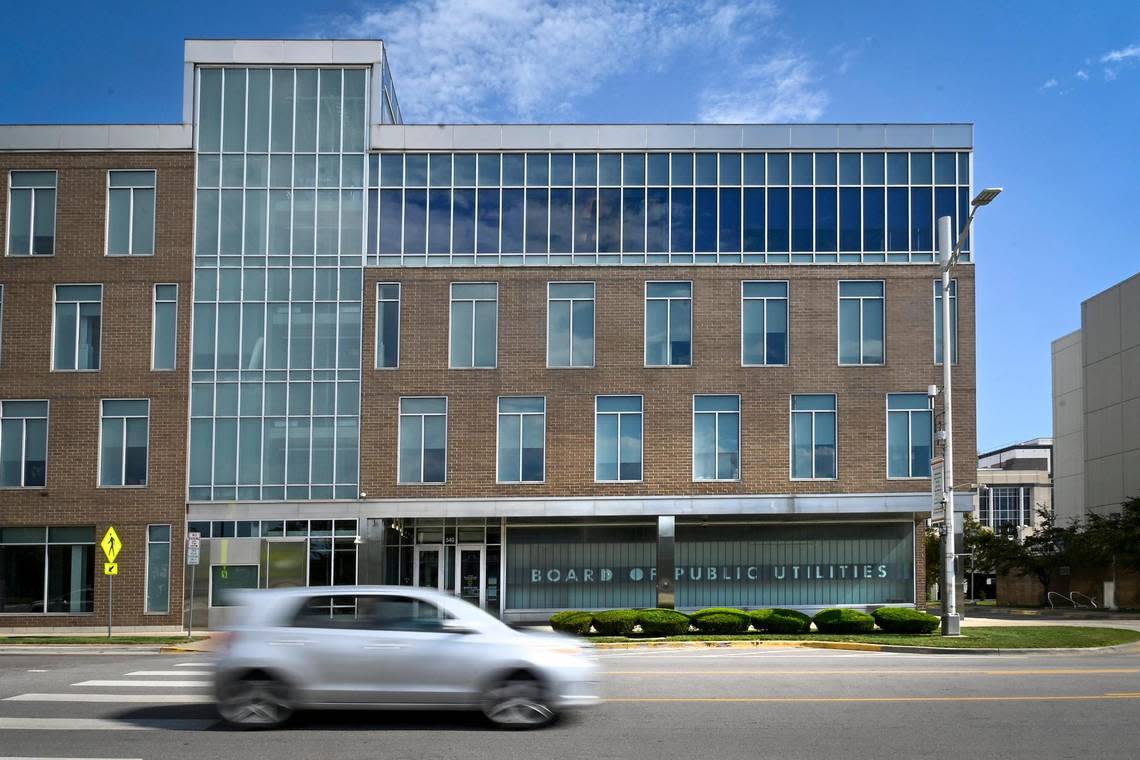KCK utility’s worker residency probes cost nearly $400K, raise discrimination concerns

Over the past decade, the Kansas City, Kansas, Board of Public Utilities has spent close to $400,000 on private investigators to enforce the company’s residency requirement.
But in only five cases since 2015 has the public utility found that an employee was violating the rule, records obtained by The Star show.
The use of private investigators by Wyandotte County’s electrical and water utility came to light last year through a racial discrimination lawsuit filed by BPU employee Sterling Owens. The lawsuit, which says Owens was wrongly targeted because he is Black, raised questions about whether the BPU disproportionately investigates employees of color, among other allegations of discrimination.
The BPU has defended its use of private investigators, arguing it’s the best way to enforce the rule that all of its nearly 500 employees live in Wyandotte County. But other local governments that have had residency requirements — Kansas City, Lawrence, Topeka and Wichita — said they did not use private investigators for this task.
In Wyandotte County, nearly 100 invoices dating back to 2010 detail the payments to two private investigations firms: CHIEF Investigations and Clarence M. Kelley and Associates. The BPU currently budgets $20,000 per year for these services and in past years has budgeted as much as $30,000.
But the records show the utility has spent far more than that over the past decade. Averaged out over 10 years, the BPU is spending closer to $40,000 per year.
The BPU is an administrative arm of the Unified Government of Wyandotte County. It operates as a nonprofit municipal utility and its six board members are elected by voters.
In court documents, Owens’ attorneys said the BPU’s own data shows the agency disproportionately investigates employees of color.
The data shows that since 2015, the BPU has investigated 27 employees for potential residency violations. More than half of those investigated have been employees of color: nine are Black, four are Asian and two are Hispanic.
Wesley McKain, a member of MORE2, a local social justice organization, questioned why the utility needs to do the investigations at all, especially as it is expected to keep rates down for customers.
“Is that really the best use of that money?” McKain asked. “It frankly seems like a waste of money and makes me question why they’re doing it and why it costs so much.”
BPU spokesman David Mehlhaff said private investigators are better equipped to handle these kinds of tasks.
“Management cannot look the other way and it is better to have an outside trained investigator with the proper equipment perform this function than to send untrained employees out in potentially dangerous situations to be investigators,” he said in an email.
Allegations of racial discrimination
Owens is among four Black BPU employees who filed federal lawsuits against the Unified Government in recent years, saying they faced racial discrimination from colleagues, hostile work environments created by supervisors or targeted investigations.
Owens, who was hired by the company in March 2013, said he was intensely surveilled by the BPU after it wrongly accused him of living outside of Wyandotte County, which would violate the residency policy.
According to his lawsuit, Owens was called into a meeting with the company’s human resource department in November 2019 and was accused of living in Leavenworth County.
The human resource manager he met with told Owens she found it difficult to believe he lived in the residence she labeled a “shack” but which he identified as his home.
In addition to his home, Owens owned 13 investment properties in Wyandotte County and one in Leavenworth, the lawsuit said.
The BPU employed a private investigator to investigate Owens 11 times from Aug. 30 to Sept. 27 in 2019.
He submitted paperwork to BPU’s human resources department to prove he was following the residency requirement. He was.
On Sept. 11, 2020 — almost one year after Owens was first accused of violating the policy — the BPU informed him that it could not prove he did not live in Wyandotte County and apologized for the length of the investigation.
Owens was not disciplined.
Ultimately, the human resources manager who accused Owens of living in Leavenworth County was forced to resign because she falsified her own residency documents, according to the lawsuit.
Others cities’ residency checks
The BPU residency requirement has been a policy since 1998.
Every employee must sign a residency certification saying they understand the provision and will be “immediately terminated” if they violate it.
Other large cities in Kansas and Missouri handle residency requirements differently — usually without hiring private investigators.
Topeka’s more than 1,100 city employees are required to live in Shawnee County. If a question is raised about an employee’s place of residence, city spokeswoman Gretchen Spiker said, officials would investigate the matter themselves using the city’s own resources.
Wichita employs about 3,700 people and also does not use private investigators. There, the residency requirement says city workers must live within a 30-minute drive.
“We periodically run a check of addresses and then work with the departments and the employees for any clarification needed,” said Wichita spokeswoman Megan Lovely.
Across state lines, in Kansas City, Missouri, a city spokesman said residency investigations are typically handled by city staff.
Lawrence ended its residency requirement in 2021, except for the city manager. But even when it was in place, officials said, it was never enforced with private investigators.
“In my 7 years here, I’m not aware of any time that the city has done anything like this,” said Lawrence spokesman Porter Arneill.

 Yahoo Movies
Yahoo Movies 
